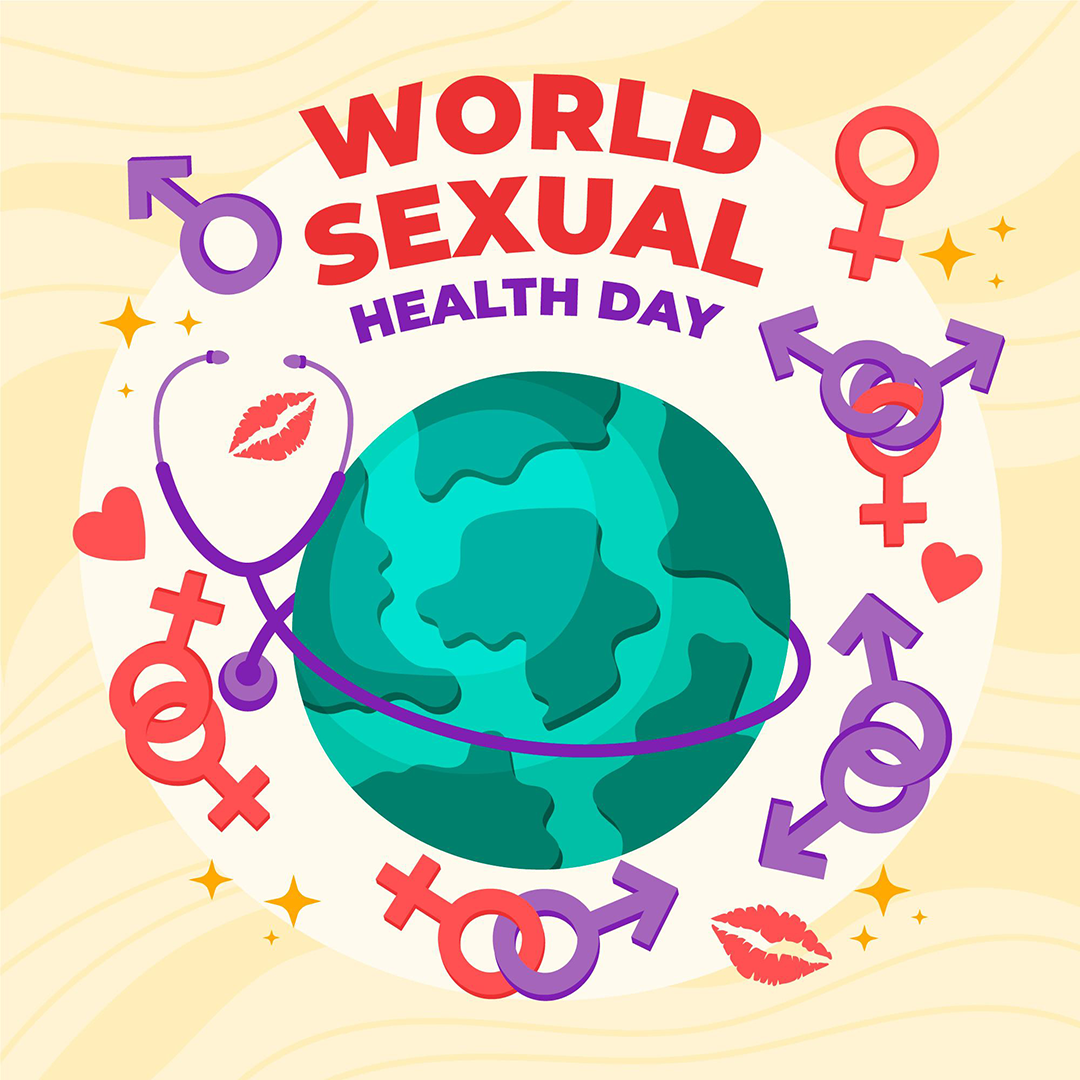
Every year on September 4th, the global community observes World Sexual Health Day, an initiative created by the World Association for Sexual Health to promote a more open, affirming conversation about sexuality and well-being. The day’s mission? To remind the world that sexual health is human health—and everyone deserves to live their sexuality safely, joyfully, and without stigma.
For the LGBTQ+ community, this observance is especially meaningful. Queer sexual health conversations are often neglected, misunderstood, or drowned out by stigma. Too often, discussions about LGBTQ+ sex are framed only in terms of disease and risk, rather than joy, consent, and intimacy.
World Sexual Health Day is our chance to flip that script—to center queer pleasure, autonomy, and holistic wellness as part of our human right to sexual health.
Why Sexual Health Matters for LGBTQ+ Communities
Sexual health isn’t just about avoiding illness. It’s about:
- Consent – ensuring all intimacy is safe and mutually desired.
- Education – having accurate, inclusive information about our bodies.
- Pleasure – embracing the joy and intimacy that come with sexuality.
- Safety – access to testing, contraception, and HIV prevention tools like PrEP.
- Equity – ensuring everyone, regardless of orientation or gender identity, has access to affirming healthcare.
For LGBTQ+ people, sexual health often comes with unique challenges. Many queer people face:
- Medical stigma when accessing care.
- Exclusion from sex education that is too often cis-hetero-centered.
- Stereotypes that reduce queer sex to risky behavior instead of a spectrum of desire and connection.
World Sexual Health Day is about reclaiming the narrative. It’s about affirming that queer sexuality is diverse, beautiful, and worthy of respect.
From Shame to Celebration
Historically, LGBTQ+ sexual health has been framed through stigma, particularly during the height of the HIV/AIDS crisis. Media narratives cast queer sexuality as dangerous or shameful, fueling homophobia and transphobia.
While those wounds still linger, our community has worked tirelessly to shift the conversation. HIV prevention tools like PrEP (pre-exposure prophylaxis), routine testing campaigns, and community-based health education have empowered LGBTQ+ people to care for their health while rejecting stigma.
But sexual health is about more than avoiding harm. It’s about embracing pleasure without guilt, nurturing intimacy, and honoring every body and every identity. That’s why World Sexual Health Day is so powerful—it redefines sexual health as something expansive, joyful, and affirming.
Consent as the Foundation
One of the cornerstones of sexual health is consent—a principle that LGBTQ+ communities have long championed.
Consent means:
- It’s mutual.
- It’s enthusiastic.
- It can be withdrawn at any time.
- It respects boundaries, identities, and desires.
For queer and trans people, navigating consent can also include discussions about gender-affirming boundaries, body dysphoria, or trauma histories. A truly affirming view of sexual health means respecting these complexities and honoring each person’s agency over their body.
World Sexual Health Day is a reminder: healthy sexuality begins with consent.
The Role of Pleasure
Too often, sexual health gets reduced to prevention: preventing infections, preventing pregnancies, preventing “risky” behavior. But the World Health Organization defines sexual health as including pleasure and well-being, not just the absence of disease.
For LGBTQ+ people, embracing pleasure without shame is a radical act. Pleasure becomes not only personal but political—an affirmation that queer bodies and desires are worthy of joy.
Talking openly about pleasure also helps dismantle harmful stereotypes. It reframes LGBTQ+ sex as a site of intimacy, love, exploration, and yes, fun—not simply as a health risk.
Access to Inclusive Healthcare
One of the biggest barriers to queer sexual health is access to affirming healthcare. Too many LGBTQ+ people face:
- Doctors who assume heterosexuality.
- Providers who lack knowledge of PrEP, gender-affirming care, or queer reproductive options.
- Environments where disclosing identity feels unsafe.
World Sexual Health Day is a call to demand better. Inclusive sexual healthcare must mean:
- Training providers in LGBTQ+ health.
- Ensuring access to PrEP, HIV/STI testing, and condoms without stigma.
- Supporting trans-inclusive care, from hormone therapy to gynecological services.
- Recognizing that reproductive health includes queer families, too.
Healthcare rooted in affirmation is healthcare that saves lives.
How to Mark World Sexual Health Day
Here are ways to honor World Sexual Health Day, especially through an LGBTQ+ lens:
- Educate Yourself and Others
Share accurate, inclusive resources on queer sexual health. Knowledge is power. - Get Tested, Know Your Status
Routine HIV/STI testing is an act of self-love and community care. - Celebrate Consent
Talk openly about boundaries, communication, and respect in intimacy. - Embrace Pleasure Without Shame
Host discussions, workshops, or personal reflections on sex positivity in queer lives. - Advocate for Inclusive Healthcare
Support policies, organizations, and campaigns that expand access to affirming sexual health services.
Building a Culture of Sexual Wellness
World Sexual Health Day isn’t about one day—it’s about shifting culture. It’s about building a world where queer people can access sexual health care without fear, learn about their bodies without shame, and experience intimacy without stigma.
It’s about ensuring sexual health education includes LGBTQ+ experiences from the start. It’s about making pleasure and consent central to the conversation, not afterthoughts. And it’s about affirming that queer sexuality is not something to fear—it’s something to celebrate.
On September 4th, let’s mark World Sexual Health Day by claiming space for queer joy, queer pleasure, and queer bodies. Because sexual health is not just about surviving—it’s about thriving.
In Solidarity, Always
– Ryder
Discover more from Ryder Tombs
Subscribe to get the latest posts sent to your email.


